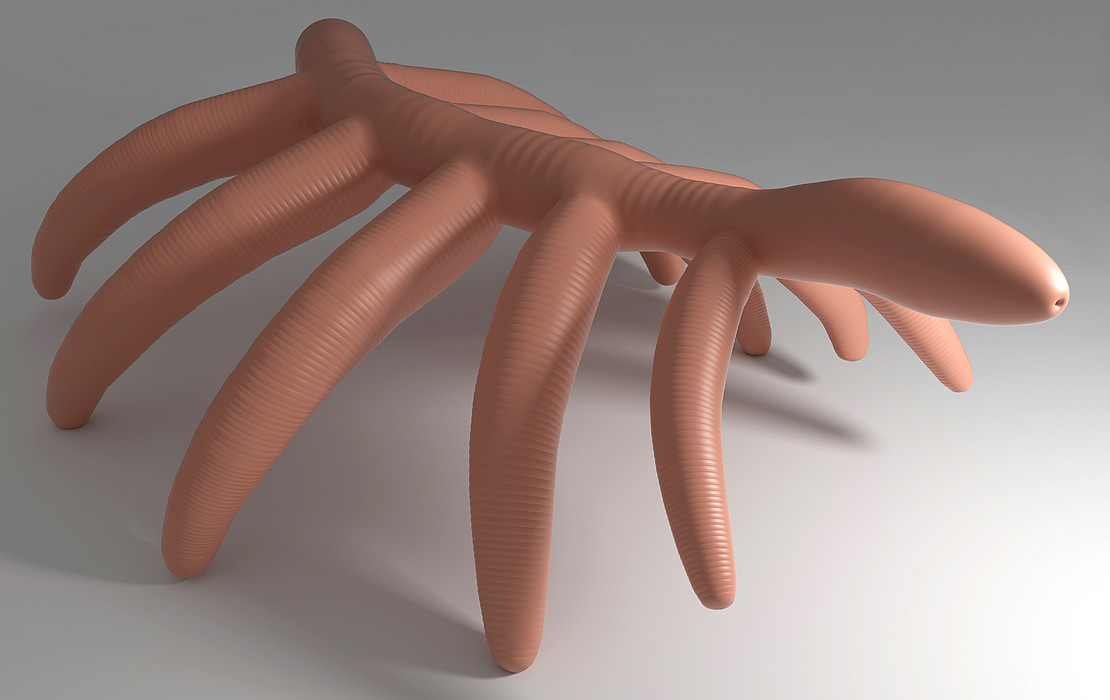This page contains automatically translated content.
Named after Humboldt - Kassel scientists discover prehistoric worm
 Image: Qiang Ou.
Image: Qiang Ou.The Chinese visiting scientist Dr. Qiang Ou, who conducted research for two years in the group of the Kassel zoologist Prof. Dr. Georg Mayer, found the extremely rare fossil in the Chengjiang deposit near the Chinese metropolis of Kunming. So far, only one specimen of this species has been found. The animal lived in the Early Cambrian, around 520 million years ago. The researchers hope that their find will provide new insights into life in the Cambrian Ocean. The species is named Lenisambulatrix humboldti.
"Lenisambulatrix humboldti belongs to the so-called lobopods," explains Mayer, the ancestors of today's tardigrades and stubby and arthropods. "Unlike other animals in this group, it had no weapons to ward off predators," Mayer says, "neither armor nor claws." The Humboldt lobopod most likely lived in seclusion to protect itself from enemies. Its habitat was the ocean floor. Its clawless legs were used for crawling on the soft sediment. The species was over three centimeters long.
Named, Lenisambulatrix humboldti was named after Alexander von Humboldt, the famous 19th century naturalist. "Interestingly, my colleague Qiang's birthday is the same day as Alexander von Humboldt's," Mayer says.
The results of the two scientists' research appeared in the journal Scientific Reports.
Prof. Dr. Georg Mayer researches and teaches at the Department of Zoology at the University of Kassel.
Dr. Qiang Ou was a visiting scientist and Humboldt Fellow at the University of Kassel during the study.
Contact:
Prof. Dr. Georg Mayer
University of Kassel
Department: Zoology
Email: georg.mayer[at]uni-kassel[dot]de
Tel: +49 561 804-4805